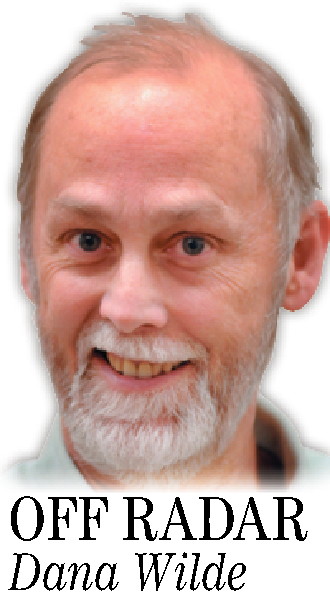“A Dangerous New World: Maine Voices on the Climate Crisis,” Meghan Sterling and Kathleen Sullivan, eds.; Littoral Books, Portland, Maine, 2019; 154 pages, soft cover, $20.
“where i come from the fish have souls,” by Lisa Panepinto; Spuyten Duyvil, New York City, 2019; 112 pages, paperback, $15.
Not to put too fine a point on it, but the climate crisis we’ve been warned about for the past roughly 50 years is upon us. Most reasonable people are having at least troubling misgivings about the swelling evidence of rising seas, warming atmosphere, increased severe weather, droughts, wildfires and disappearing wildlife — all set to get significantly worse before they get better. And several books I’ve received recently indicate that the literary world is marshaling efforts to, if not provide practical solutions, at least recognize the problem’s urgency and effects.
“Where i come from the fish have souls” by Lisa Panepinto, of Bangor, is not exactly dyed-in-the-wool eco-poetry, but it is strongly characterized by an ecological and social conscience grounded in a reverence for nature. These poems range in subject matter from travelogues (“journey to dc”), to encomiums (“beautiful saint alberta,” conversations with an elderly woman), to crystallized lyrics on the spirit the poet detects, or seeks to detect, in the natural world. Almost every poem comprises a snapshot or a series of snapshots connected usually by no explicit transition from thought to thought. It’s very difficult to make fragmented phrasing and imagery like this feel coherent. But in a poem like “call center,” whose snapshots consist of short descriptions of calls made, feelings of sadness, humor, pathos, bathos, compassion and more, fit together strikingly well.
The human relationships depicted in this book seem to take their energy, at least in the hope of the poet, from humanity’s links to the natural world. She is noticing, or trying to notice, “spirit” everywhere, explicitly in association with her sense of the Native American view of nature. (If I’ve read this right, the only capital letters in the whole book occur on words with Native American references.) The natural world is a sort of enormous cathedral, in these poems, often threatened by misuse and pollution. The mystical, ecological and social conscience that pervades the book seems crystallized in the second section of “downstream:”
i prayed to the floods in texas
floods in india and nepal
please stay unscathed
by the pollution
give a cab ride
to the injured hawk
give a life raft to the poor
There is a sense that “where i come from the fish have souls” originates in the ecological idealism, inspired in part by cranky Thoreau, which drove the back-to-the-land movement of the 1960s and ’70s. But the imperfect may well be our paradise. The spiritual seeking here seems authentic, and the poetry, though deliberately fragmentary, coheres in unexpected ways. Your conscience is likely to be reassured, caressed and stung by the ecologies of these poems. “Where i come from the fish have souls” is available through Spuyten Duyvil and bookstores.
. . . . . .
Littoral Books in Portland also has taken aim at the climate crisis with “A Dangerous New World,” an anthology of writings and artworks on the climate crisis. Editors Meghan Sterling and Kathleen Sullivan tell us they met at a literary event earlier this year and recognized each other’s consternation about the looming threat to the climate. So they decided to create an anthology that reflected their mutual feeling that “the dreams we have for future generations hang in the balance if we do not change course.”
The book’s writings, predominantly by women, comprise personal essays and poems covering personal feelings of grief, indignation, anger, nostalgia, desperation, hope and (the editors emphasize) love. Caitlin Shetterly’s essay “Finding Grace in Dark Times” integrates personal observations with a concise rehearsal of the basic horrifying facts of climate change in deft, authentically heartfelt precision. Among the many poems, Marcia F. Brown’s “News of the World,” stood out for me as a striking rendition of the ominous ways events in the outer world infuse and infect the inner psyche. Similarly for Jacqueline Moore’s “Last Day in Eden,” about the flight of a hummingbird who takes its “last long sip of soul … / before the slash-burn-slash / turns everything living / into wasteland.”
The book’s middle section offers well-made color reproductions of a wide variety of visual artworks. Some images are clearly targeted to climate concerns, such as “Gaia #14” by Jean Pollard, of Winslow, of a bright blue Earth floating in a cosmos of ghostly bugs, birds and other terrestrial creatures. Other images, including landscapes from as far away as British Columbia, are attached to the theme by artists’ statements accompanying each piece, rather than providing explicit visual cues on the anthology’s subject.
If you are in your right mind, climate change occupies psychic territory inside you that is somewhere between concern and the brink of panic. Commiseration is available in “A Dangerous New World,” available online from Littoral Books.
Off Radar takes note of poetry and books with Maine connections the first and third Thursdays of each month. Dana Wilde is a member of the National Book Critics Circle. Contact him at universe@dwildepress.net.
Comments are not available on this story.
Send questions/comments to the editors.



